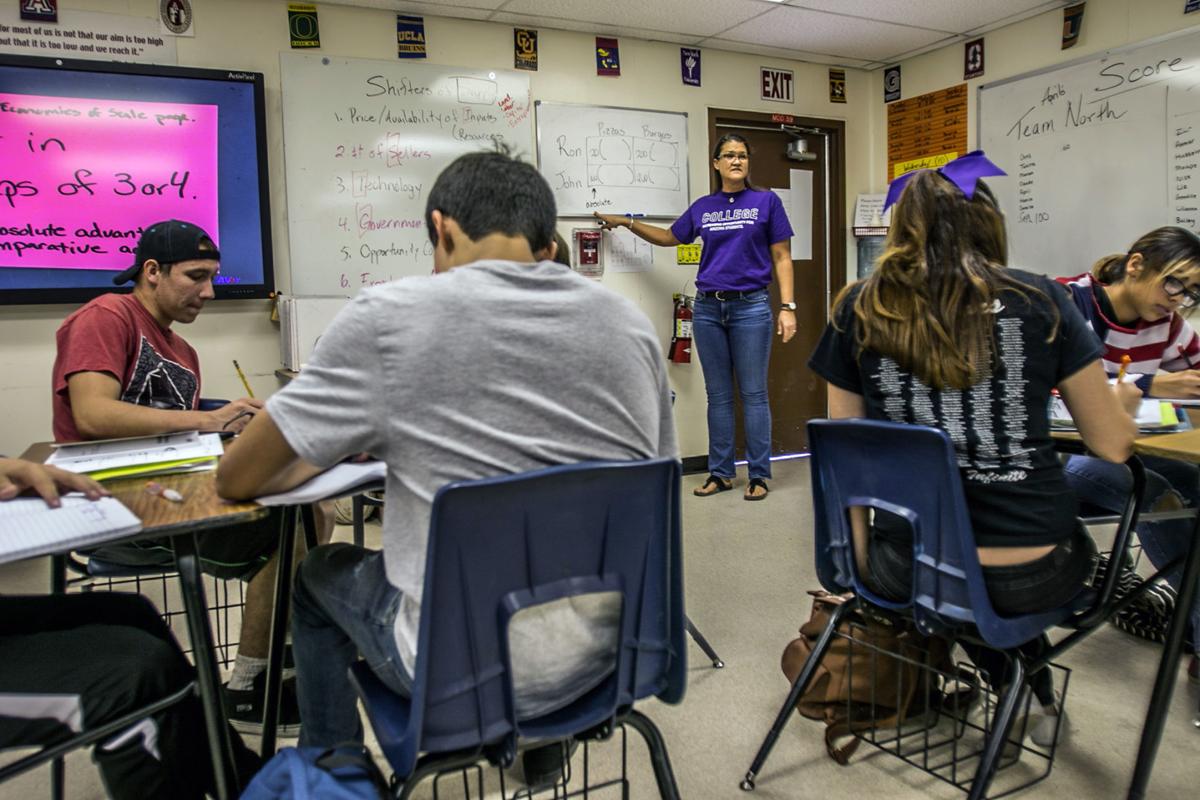A proposal to revive TUSD’s controversial economics class with ties to the Koch network fell flat Tuesday when the school district realized that the course had, once again, not been properly vetted.
The course, Philosophy 101: Ethics, Economy and Entrepreneurship, slipped into several TUSD schools two years ago, unapproved and unvetted, then was nixed in the middle of last school year when auditors discovered that the Governing Board hadn’t ever voted to offer the course, as required by state law.
The Tucson Unified School District Governing Board on Tuesday was scheduled to revisit offering the course, which was developed through the University of Arizona’s Center for the Philosophy of Freedom, better known as the “Freedom Center.” The center receives funding from Charles Koch and other Libertarian-minded donors, some of them unnamed, as well as from a special appropriation from the Legislature.
But the Governing Board backed off reviving the course after they discovered that the textbook had still not gone through the required vetting review.
The district governing board, in a 3-2 vote, decided to postpone the decision until the textbook undergoes the necessary 60-day review process, during which the textbook must be made available to the public.
Governing Board members Mark Stegeman and Rachael Sedgwick voted against the postponement.
The delay means the course will not be available to students in the upcoming school year, though the Governing Board may revive the course for the 2019-2020 school year.
But that didn’t stop a horde of critics from testifying against the program.
The district had proposed offering the class as at Tucson, Rincon and University high schools. But unlike in past years, the course would have only been offered as an elective. Previously it was a core class that satisfied the requirement that high school students take at least one economics course.
Critics argued that the course presents a skewed version of economics that ignores concepts that don’t fit neatly with free-market ideals, and that the main text used to teach it is pure propaganda.
Maureen Byrne, a retired national board certified teacher, said the class and textbook isn’t valid economics, “it’s bait.”
“It encapsulates the values of those who financed it: the Koch dark money predators and the Templeton Foundation’s religious right. This bait is intended to lure and eventually capture the minds and the data of our students,” she told the governing board.
Activist Patrick Diehl noted that state law prohibits schools from approving books of a partisan nature, and said the textbook is clearly partisan.
“For instance, even though 271 of its 311 pages concern economics, it never acknowledges the existence of labor unions. More significantly, the overview of economics theories one expects in an introductory (course) is entirely absent,” Diehl said.
“Major figures like John Maynard Keynes, and even Milton Friedman, go completely unmentioned. Instead the student gets an exclusive diet of the Austrian school, notably (Friedrich) Hayek, and other figures in the Libertarian canon.”
Supporters noted that the course offered a much needed dual-enrollment option for students who wanted to earn college credit without the burden of a high-stakes test. They argued the controversy over the course was overblown and the class should be judged on its own merits, not on its loose affiliation to controversial political figures.
Stacia Reeves, a Rincon High School teacher who taught the class for the past two years, said the course she teaches is not the right wing propaganda community members believe it to be.
“If this course was the course I heard described today, I would be with you and opposed to the course,” she said.
She noted that the students hosted a showcase to highlight entrepreneurial ideas they came up with in class. One student, a refugee from a country where electricity isn’t always available, came up with an idea for a combination stethoscope and blood pressure monitor that is easily transportable and better suited for places without electricity.
Reeves argued that through socratic questioning and the readings — which encompass more than just the textbook — students are learning to think deeply about economic theory, entrepreneurship and integrity.
“The students feel empowered that they get to choose, they get to disagree, they get to challenge the information that is there,” she said.
At least three other public school districts in Pima County — Amphitheater, Sahuarita and Vail — along with some private and charter schools, offer the course, either as an elective or to meet a core requirement for graduation.
And TUSD Superintendent Gabriel Trujillo said the “saga may not be over.”
He said TUSD administration won’t ask for the course to be revived in the 2019-2020 school year, but teachers always have the right to ask the Governing Board to re-introduce the class.
“If the Philosophy 101 teachers feel strongly enough to actually engage in the 60-day review process, we certainly support their right to do so. But they’ll have to be the ones to trigger that,” he said.





